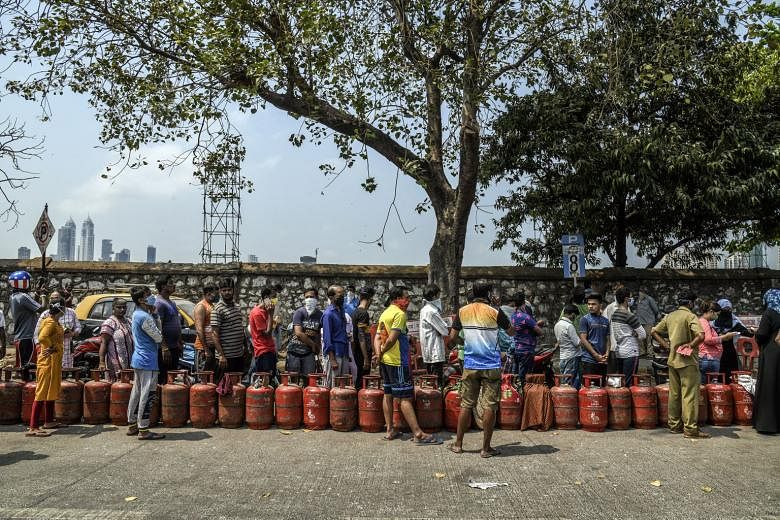India yesterday announced a 1.7 trillion rupee (S$32.49 billion) financial package, comprising direct cash transfers and free food, to help the nation's poor weather the downturn amid the global Covid-19 pandemic.
While the government's focus on the poor found support, economists and right-to-food activists assessed that it would not be enough in a country where more than half the population of 1.35 billion is poor. Many said the government would need to follow up with further relief.
The package worked out to a little less than 1 per cent of gross domestic product (GDP), far less than what many other countries had announced, including Singapore, which outlined a package amounting to almost 11 per cent of GDP yesterday.
"A package is ready for the poor who need immediate help like migrant workers and urban and rural poor. No one will go hungry," said India's Finance Minister Nirmala Sitharaman.
Among other things, she announced that 800 million people would be eligible for 5kg of free wheat or rice and 1kg of free pulses per month for three months. Poor farmers will also receive 2,000 rupees, other beneficiaries will get free gas cylinders and healthcare workers will enjoy medical insurance of up to 5 million rupees.
India went into lockdown from midnight on Tuesday to prevent the further spread of Covid-19. The populous South Asian country has witnessed a spike in patients with over 649 cases and 13 deaths.
The government is hoping to break the chain of transmission by keeping people indoors, although there is widespread concern that not enough testing is being done.
The complete cessation of economic activity is hitting the poor the hardest. Daily wage labourers have lost their jobs, with thousands trekking across different parts of the country in a desperate bid to reach home.
"The good thing is the free food. It is a very important and necessary measure," Professor Jayati Ghosh, a development economist and professor at the Jawaharlal Nehru University, said in response to the government's financial package.
"This is the biggest attack on livelihood that I have seen coming from the demand and supply side. Over 50 per cent of the population have no means of earning an income for the foreseeable future. How are they to survive?"
Yesterday's package supplements handouts by different state governments. Uttar Pradesh has announced cash handouts of 1,000 rupees per month for daily wage earners, while Punjab is giving 3,000 rupees to every registered construction worker in the state.
Yesterday's announcement raised demands for an economic stimulus package for industry, and this is expected in the coming days.
The government should aim for a fiscal stimulus amounting to more than 4 trillion rupees if the disruptions continue for the next three months, said Mr Chandrajit Banerjee, director general of the Confederation of Indian Industry.

